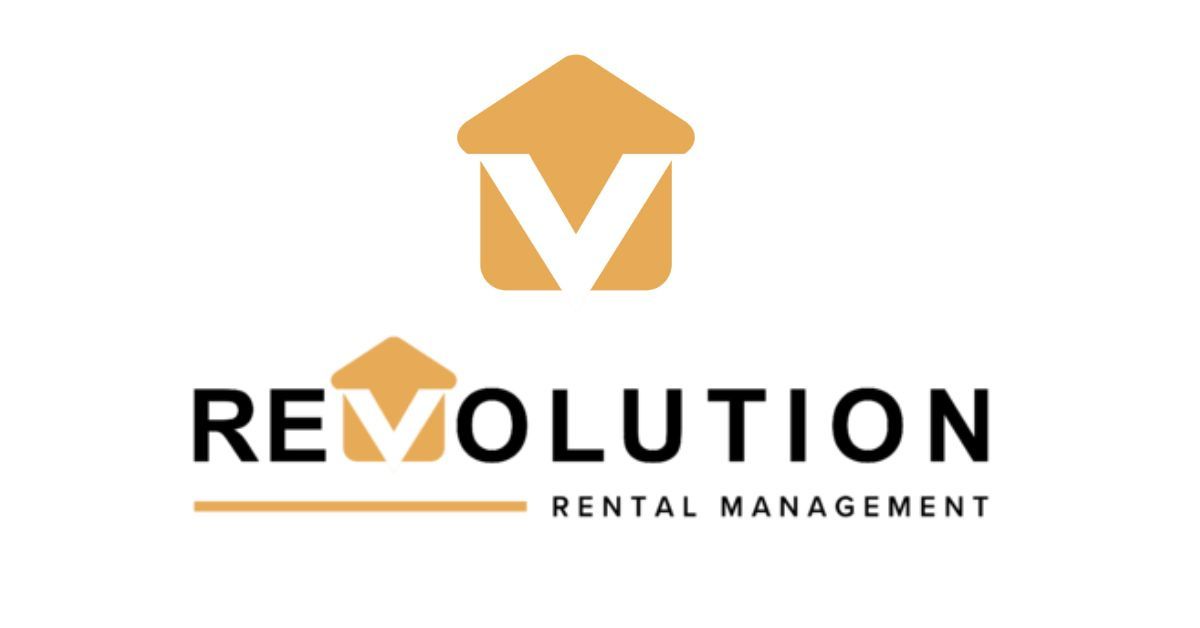In the world of investment, the age-old debate between real estate and the stock market continues to be a topic of fervent discussion. Both avenues offer unique opportunities and challenges, making it crucial for investors to make well-informed choices that align with their financial goals and risk tolerance. At the heart of this decision-making process lies the desire for wealth accumulation and financial security.
In this blog post, we'll dive deep into the Real Estate vs. Stock Market debate, exploring the advantages and drawbacks of each investment option. Additionally, we'll introduce you to Revolution Rental Management, a trusted partner that can help you navigate the complexities of real estate investment. Whether you're a seasoned investor or just starting your investment journey, this article aims to provide valuable insights to help you make informed decisions.
Join us on this journey as we unravel the intricacies of both investment choices and discover how Revolution Rental Management can assist property investors in maximizing returns and achieving financial success. Let's embark on the path to financial prosperity together.

I. Understanding Real Estate as an Investment
Real estate investment holds a prominent place in the portfolios of many successful investors. To make informed investment decisions, it's crucial to understand both the advantages and challenges associated with this asset class.
A. Advantages of Investing in Real Estate
- Tangible Asset: Unlike stocks and bonds, real estate provides investors with a tangible asset—a physical property they can see and touch. This tangibility often offers a sense of security.
- Potential for Rental Income: Real estate can generate rental income, providing investors with a consistent cash flow. This can be particularly appealing for those seeking regular income streams.
- Diversification: Real estate offers diversification benefits. It typically has a low correlation with other asset classes like stocks and bonds, which can help spread risk in your investment portfolio.
B. Risks and Challenges of Real Estate Investment
- Property Management: Managing a real estate investment can be time-consuming and challenging. Issues like tenant disputes, maintenance, and property management can create stress for investors.
- Illiquidity: Real estate is considered an illiquid asset. Unlike stocks, which can be easily bought and sold on the stock market, selling a property can take time and may involve transaction costs.
- Market Fluctuations: Real estate markets can experience fluctuations in property values, which can impact the overall returns on your investment. Local economic conditions and housing demand play significant roles in these fluctuations.
Understanding these aspects of real estate investment is essential as it helps you make an informed decision about whether it aligns with your investment goals and risk tolerance. Additionally, for those interested in real estate but concerned about the challenges, partnering with a professional property management service like Revolution Rental Management can alleviate many of these concerns, allowing you to enjoy the benefits of real estate investment without the associated headaches.

II. The Stock Market as an Investment Option
While real estate offers its unique set of advantages and challenges, the stock market presents another compelling investment option. Understanding the intricacies of investing in stocks is essential for a well-rounded investment portfolio.
A. Benefits of Investing in the Stock Market
- Liquidity and Flexibility: Stocks are highly liquid assets, meaning you can easily buy and sell them on the stock market. This liquidity provides investors with flexibility in managing their investments.
- Portfolio Diversity: The stock market offers a vast array of investment opportunities across various industries and sectors. This diversity allows investors to build well-rounded portfolios that spread risk.
- Passive Investment Options: Stock market investors can choose between actively managing their portfolios or opting for passive investment vehicles like index funds or exchange-traded funds (ETFs). Passive investing can be a low-cost and convenient way to gain exposure to the stock market.
B. Risks and Drawbacks of the Stock Market
- Market Volatility: The stock market is known for its volatility. Prices of stocks can fluctuate significantly in response to economic, political, and market events, which can create uncertainty.
- Lack of Control: Unlike owning physical assets in real estate, stock market investors have limited control over the companies they invest in. Corporate decisions and market dynamics can affect stock performance.
- Emotional Investing: Emotional reactions to market movements can lead to impulsive decisions that may not align with your long-term financial goals. Emotional investing can be a significant risk for stock market participants.
Understanding the benefits and potential pitfalls of investing in the stock market is crucial for making informed decisions. Additionally, finding the right balance between real estate and stock market investments can help you create a diversified portfolio that meets your financial objectives and risk tolerance.

III. Making Informed Investment Decisions
Investing in either real estate or the stock market requires careful consideration of various factors. To ensure your investments align with your financial goals and risk tolerance, it's essential to make well-informed decisions.
A. Setting Clear Financial Goals
- Short-Term vs. Long-Term Goals: Determine whether your investment objectives are short-term (e.g., buying a home) or long-term (e.g., retirement planning). This distinction will influence your investment strategy.
- Risk Tolerance: Assess your willingness and ability to take on risk. Your risk tolerance should align with your financial goals and your emotional capacity to handle market fluctuations.
B. Assessing Risk Tolerance
- Risk Assessment Tools: Use risk assessment tools and questionnaires provided by financial advisors or investment platforms to gauge your risk tolerance accurately.
- Diversification: Understand the role of diversification in managing risk. Diversifying across asset classes can help balance your portfolio's risk.
C. Understanding Investment Timelines
- Short-Term vs. Long-Term Investments: Consider your investment horizon. Real estate and stock market investments may have different timeframes for optimal returns.
- Market Cycles: Familiarize yourself with economic and market cycles to make timely investment decisions. Different asset classes may perform better during specific phases of the market.
D. Diversifying Your Portfolio
- Asset Allocation: Determine the appropriate allocation of your investment capital between real estate and the stock market. Your portfolio should reflect your goals, risk tolerance, and investment horizon.
- Asset Selection: Within each asset class, select individual investments carefully. In the stock market, this could involve researching companies and industries, while in real estate, it may mean evaluating property locations and types.
By taking these factors into account, you can create a well-rounded investment strategy that aligns with your unique financial circumstances and objectives. Keep in mind that your investment decisions should evolve over time as your goals and circumstances change, and it's often beneficial to consult with a financial advisor to ensure you stay on the right track.

IV. Revolution Rental Management: Your Partner in Real Estate Investment
Investing in real estate offers numerous advantages, but it also comes with its share of challenges. One of the most significant challenges is managing your property effectively to maximize returns and ensure peace of mind. This is where Revolution Rental Management steps in to assist property investors.
Services Offered by Revolution Rental Management
Revolution Rental Management is your trusted partner in the realm of property investment, offering a comprehensive suite of services to simplify your real estate journey and maximize your returns. Here's a closer look at the top-notch services we provide:
Property Marketing:
Effective property marketing is the foundation of a successful real estate investment. At Revolution Rental Management, we understand the art of showcasing your property to attract the right tenants. Our expert marketing team utilizes a multi-faceted approach to ensure your property gets the visibility it deserves:
- Professional Photography: We start by capturing high-quality images of your property, highlighting its unique features and charm.
- Listing Optimization: Our team creates compelling property listings with persuasive descriptions that resonate with potential tenants.
- Online Presence: We leverage various online platforms and social media to ensure your property is visible to a broad audience.
- Targeted Advertising: We use data-driven strategies to target prospective tenants who are most likely to be a good fit for your property.
- Property Tours: We arrange property viewings and virtual tours to showcase your investment at its best.
Tenant Screening and Placement:
Finding the right tenant is paramount to a successful rental property. Our meticulous tenant screening process ensures that you welcome responsible and reliable tenants who will treat your property with care. Here's how we make it happen:
- Thorough Background Checks: We conduct comprehensive background checks, including credit history, rental history, and criminal background checks, to assess tenant suitability.
- Income Verification: We verify the income of potential tenants to ensure they can comfortably meet their rental obligations.
- Rental History Evaluation: We assess their rental history, looking for evidence of responsible tenancy and timely rent payments.
- Lease Agreement: We handle all aspects of the lease agreement, ensuring that it complies with local regulations and protects your interests.
Rent Collection and Accounting:
Ensuring a steady and hassle-free rental income stream is at the heart of our services. Revolution Rental Management takes care of rent collection and accounting with precision and transparency:
- Rent Collection: We establish efficient rent collection processes, making it convenient for tenants to pay rent on time.
- Late Payment Handling: In case of late payments, we follow a structured procedure to ensure prompt resolution, including necessary notices and actions.
- Detailed Accounting: We maintain detailed financial records, providing you with monthly statements outlining income and expenses.
- Tax Reporting: We assist you in preparing the necessary documents for tax reporting, making tax season a breeze.
Maintenance and Repairs:
Property maintenance is key to preserving its value and ensuring tenant satisfaction. Our team takes a proactive approach to maintenance and repairs:
- Regular Inspections: We conduct regular property inspections to identify maintenance needs and address them promptly.
- Professional Repairs: When repairs are necessary, we coordinate with trusted contractors and vendors to ensure quality work at competitive prices.
- Emergency Response: We're available 24/7 to handle emergency repairs promptly, ensuring tenant safety and property integrity.
- Preventive Maintenance: We also schedule preventive maintenance to reduce the likelihood of costly repairs in the future.
Landlord Eviction Protection:
While we strive for successful tenant relationships, we understand that sometimes eviction becomes necessary. Our eviction protection services aim to make this process as smooth and legally compliant as possible:
- Legal Expertise: We have a deep understanding of landlord-tenant laws, ensuring that eviction proceedings adhere to all legal requirements.
- Timely Action: We take swift and decisive action when it becomes apparent that eviction is necessary, minimizing financial losses.
- Tenant Communication: We handle all communication with the tenant during the eviction process, sparing you from potential conflicts.
- Transition to New Tenant: After the eviction, we work diligently to secure a new, reliable tenant for your property.
Revolution Rental Management is not just a property management company; we are your partners in real estate investment success. With our range of services and expertise, you can enjoy the benefits of property investment while we handle the complexities, ensuring your investment thrives.
Conclusion
In the dynamic world of investment, where choices abound and financial goals vary, the Real Estate vs. Stock Market debate is far from being a one-size-fits-all scenario. It's a decision that demands careful consideration, aligning your investment choices with your unique objectives and risk tolerance.
As we've explored the advantages and challenges of both real estate and the stock market, it becomes evident that a well-rounded investment strategy often involves combining both approaches. By diversifying your portfolio across different asset classes, you can better safeguard your investments against market volatility and seize opportunities in various economic conditions.
While the potential benefits of real estate investment are clear, so too are the complexities involved in property management. That's where Revolution Rental Management steps in as your invaluable partner. We offer full-service property management solutions designed to simplify your real estate investment journey, increase rental income, and preserve the value of your properties. With our expertise and dedication, you can navigate the challenges of real estate investment with confidence.
In conclusion, making informed investment choices and leveraging the expertise of professionals like Revolution Rental Management can help you achieve your real estate investing goals, providing you with the peace of mind and financial success you seek. It's not about choosing one path over the other; it's about finding the right balance and strategies that work best for you.


